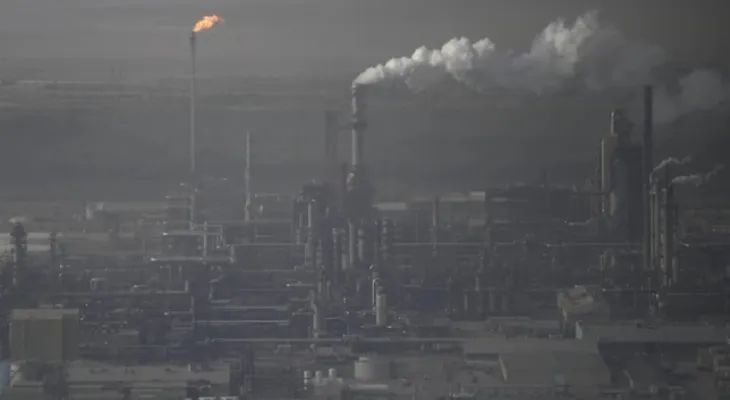Search here
Newspaper
Search here

Arab Canada News
News

Published: January 26, 2024
A new study said that oil extraction operations in the tar sands in Alberta produce much more harmful air pollutants than officially reported, with daily emissions comparable to those in major traffic-congested cities like Los Angeles.
The study, published on January 25 in the academic journal Science, measured concentrations of organic carbon emissions in the air by flying over the tar sands and taking samples. These figures were then compared with estimated amounts based on ground data prepared by the companies operating the bituminous sands.
The researchers found pollution levels ranging from 20 to 64 times higher than those reported by the industry, depending on the facilities in the oil sands.
The chemicals also included volatile organic compounds, which are considered hazardous to human health and are found on warning labels on products such as nail polish and paint thinner.
John Liggio, co-author of the study and research scientist at the Canadian Environmental and Climate Change Agency, said that in terms of quantity, the total production of these chemicals is roughly equal to what is produced nationwide from all other human sources, from transportation to manufacturing.
Pollutants were not captured in official reports
The emission levels reported by the industry to the federal government and Alberta governments are generally calculated using the so-called bottom-up approach, based on estimates of emission quantities produced by specific activities in the oil sands, according to the study.
The study is known for using satellite imagery and aircraft measurements as a top-down approach.
In this case, researchers took emission samples from 17 oil facilities during 30 flights in 2018.
These results are based on previous research showing that other types of pollutants, including greenhouse gases such as carbon dioxide and methane, are also higher than totals reported by oil companies.
Jeffrey Brook, an air quality expert and professor at the Dalla Lana School of Public Health at the University of Toronto, said work over the past fifteen years has consistently shown that the tar sands emit more than what is officially recorded.
Brook, who also conducted research on tar sands emissions, said the recent study shows there is a gap between what oil companies say they emit and what they actually do.
Comments